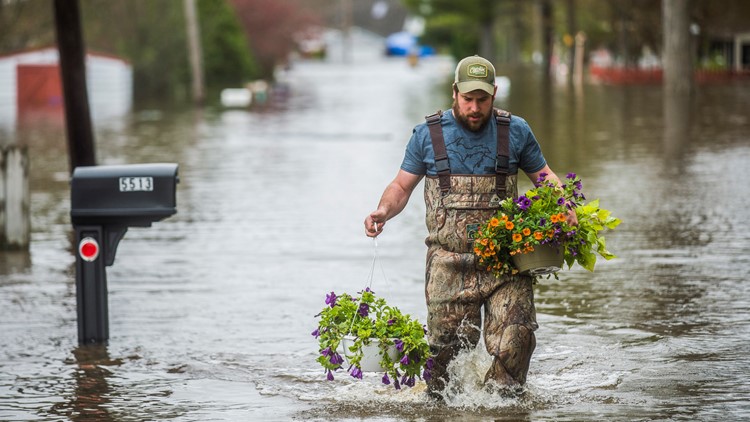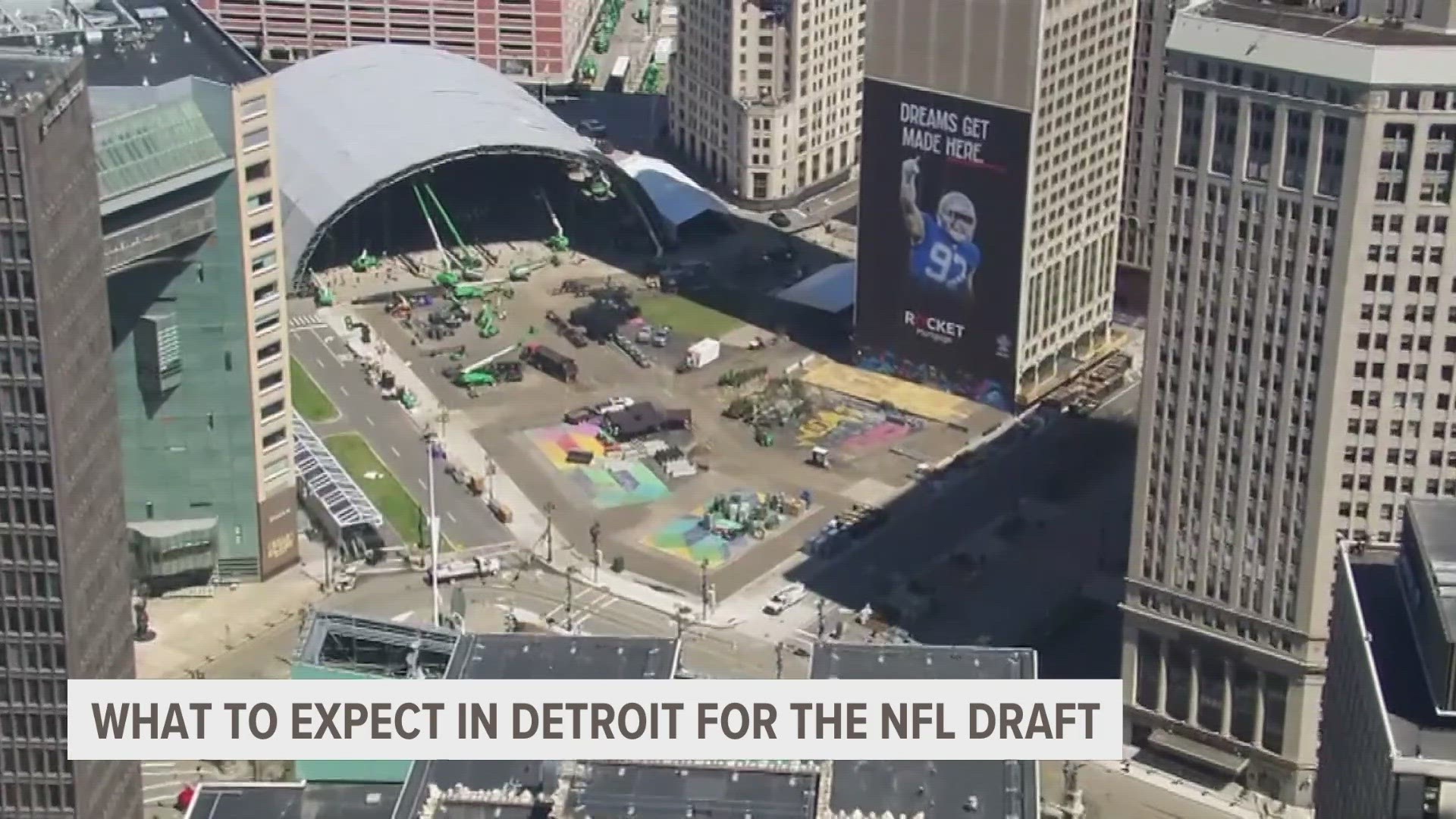LANSING, Mich — Damage evaluation and cleanup is in beginning phases after two dams breached in Midland causing thousands of residents to evacuate. Although water is starting to recede, the damage it's leaving behind can be dangerous.
The Michigan Department of Environment, Great Lakes, and Energy (EGLE) released a set of guidelines Saturday to assist Midland residents with clean up. The guidelines explain how to safely manage debris.
The EGLE guidelines include the following:
- After evacuation, check with local authorities before returning. Upon arrival at the property, conduct a visual inspection to check for any downed power lines.
- Itemize items on property, with special attention to hazardous materials such as paint, motor oil and solvents.
- Use caution when walking through standing water or large debris piles to avoid hidden hazards, such as nails and other sharp objects.
- Residents and business owners should treat flood-related construction and demolition debris as potentially containing asbestos. This material should be in a wet condition until disposal.
- Contact local officials regarding disposal instructions for structural materials, roofing, insulation, siding, appliances, carpet, furniture and other household items.
- Storm-generated woody and vegetative debris such as trees and untreated wood should be sorted and allowed to dry. These items can be chipped into mulch, composted or, saved for municipal collection in areas that do so.
- Check with your local city, township or village officials before lighting a fire. If no local ordinances are in effect, state law allows burning grass and leaves in municipalities with populations less than 7,500 unless prohibited by local ordinance. It also prohibits burning any yard debris within 1,400 feet of an incorporated city or village limit under EGLE air quality rules.
“In times of disaster, we are keeping the health and safety of Michiganders at the forefront of cleanup efforts that protect our state’s environment,” said EGLE Director Liesl Clark. “We are committed to help build a safe path to recovery.”
More from 13 ON YOUR SIDE:
►Make it easy to keep up to date with more stories like this. Download the 13 ON YOUR SIDE app now.
Have a news tip? Email news@13onyourside.com, visit our Facebook page or Twitter. Subscribe to our YouTube channel.




